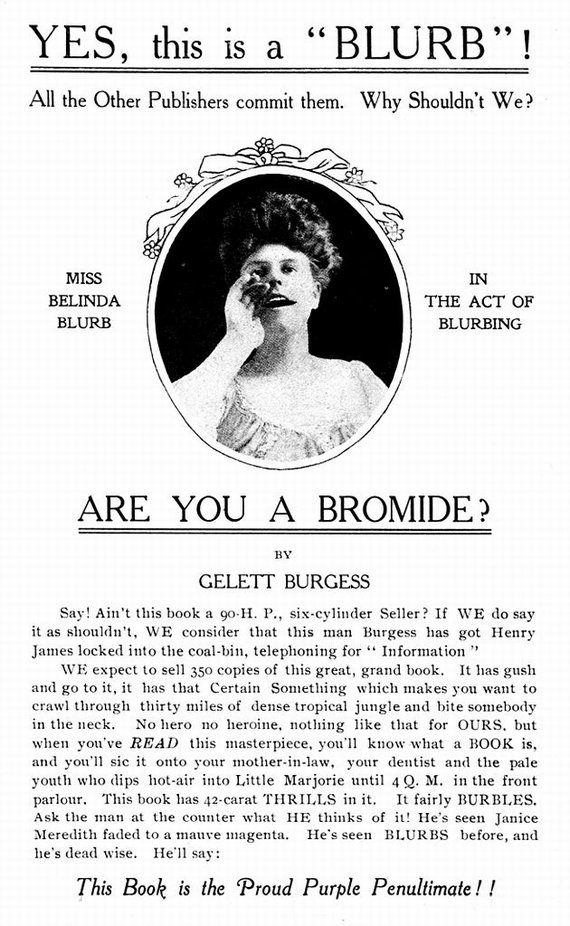
To be quite brief, everybody hates them:
Let’s be clear: blurbs are not a distinguished genre. In 1936 George Orwell described them as “disgusting tripe,” quoting a particularly odious example from the Sunday Times: “If you can read this book and not shriek with delight, your soul is dead.” He admitted the impossibility of banning reviews, and proposed instead the adoption of a system for grading novels according to classes, “perhaps quite a rigid one,” to assist hapless readers in choosing among countless life-changing masterpieces. More recently Camille Paglia called for an end to the “corrupt practice of advance blurbs,” plagued by “shameless cronyism and grotesque hyperbole.” Even Stephen King, a staunch supporter of blurbs, winces at their “hyperbolic ecstasies” and calls for sincerity on the part of blurbers.
The excesses and scandals of contemporary blurbing, book and otherwise, are well-documented. William F. Buckley relates how publishers provided him with sample blurb templates: “(1) I was stunned by the power of [ ]. This book will change your life. Or, (2) [ ] expresses an emotional depth that moves me beyond anything I have experienced in a book.” Overwrought praise for David Grossman’s To the End of the Land inspired The Guardian to hold a satirical Dan Brown blurbing competition. My personal favorite? In 2000, Sony Pictures invented one David Manning of the Ridgefield Press to blurb some of its stinkers. When Newsweek exposed the fraud a year later, moviegoers brought a class action lawsuit on behalf of those duped into seeing Hollow Man, The Animal, The Patriot, or Vertical Limit (Manning on Hollow Man: “One hell of a ride!” — evidently moviegoers are easy marks).Read the rest here.
When did this circus get started? It’s tempting to look back no further than the origins of the word “blurb,” coined in 1906 by children’s book author and civil disobedient Gelett Burgess. But blurbs, like bullshit, existed long before the term coined to describe them (“bullshit,” in case you were wondering, appeared in 1915). They were born of marketing, authorial camaraderie, and a genuine obligation to the reader, three staples of the publishing industry since its earliest days, to which we will turn momentarily.

